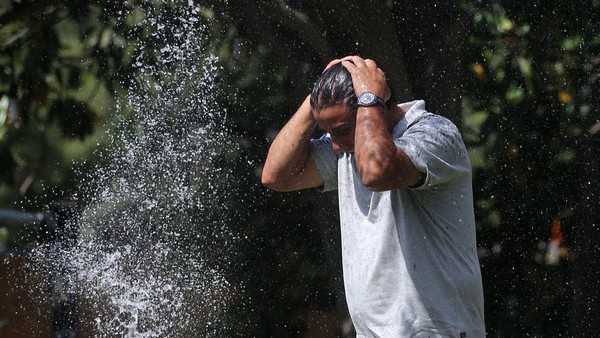The Minister of the Interior, Carolina Tohá, confirmed this Friday the declaration of a red alert between the Metropolitan and Ñuble regions due to the high temperatures expected this weekend.
Temperatures are expected to reach up to 35°C this Friday. On Saturday, they could climb to 37°C, while Sunday is anticipated to see a slight drop, with highs of 34°C.
In this context, "the main call to the public is to adopt behaviors of care, prevention, and responsibility, because all fires are started by people. We've had around 2,800 fires this year, meaning thousands of people—at least one per fire, and in several cases, more than one—have engaged in risky behaviors that led to fires," stated Tohá.
The minister reported that by this point in 2024, there had been only one heatwave, whereas this year there have already been 14. She also mentioned that there has been a 28% increase in wildfires compared to last season, but 4% less land area has been burned.
The red alert is in effect starting this Friday, based on the report issued by the Chilean Meteorological Directorate (DMC). The warning highlights high temperatures affecting the Coastal Range, the Valley, and the Pre-Cordillera of the Metropolitan Region from yesterday afternoon until Sunday, January 12.
Senapred technical meeting
Due to the above, a technical meeting was held this morning at the headquarters of the National Disaster Prevention and Response Service (Senapred), with teams participating remotely from Coquimbo to Los Ríos.
During the meeting, authorities reviewed the "single-strike" strategy being implemented for this season's fires, meaning that at the onset of a fire, all resources and efforts are deployed to prevent its spread.
Given that temperatures will be especially high between Maule and Biobío, Senapred's director, Alicia Cebrián, emphasized that in that zone, "additional actions have been implemented, such as monitoring, prevention, preventive deployment in the territories, and especially risk communication to inform citizens about the heat threat and how it may impact their health."
Source:Cooperativa







Comentarios (0)
No hay comentarios aún. ¡Sé el primero en comentar!
Deja un comentario